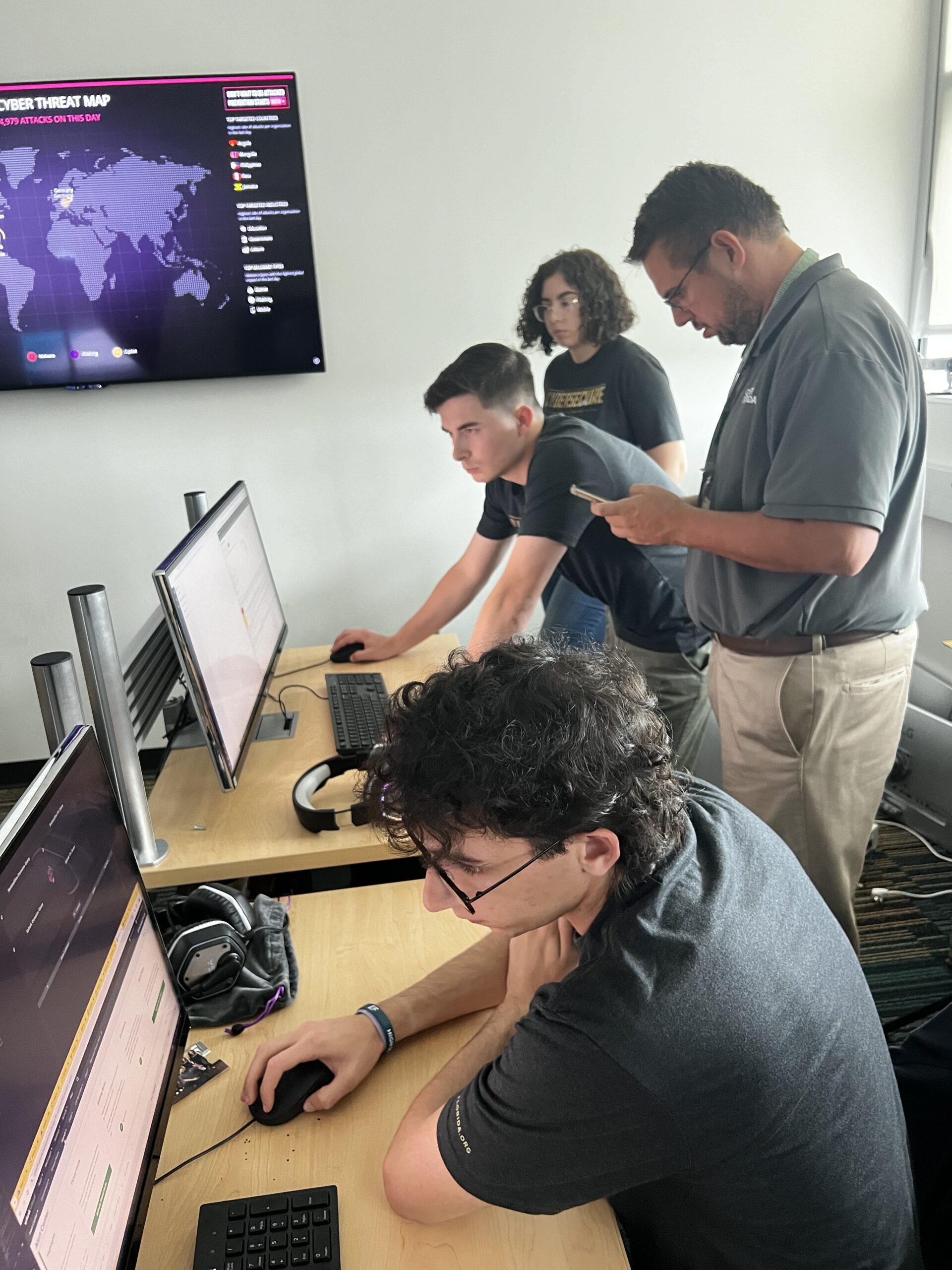
Cyber Florida at USF’s Security Operations and Cybersecurity Apprenticeship Program (SOCAP) employs up to 10 students each semester, with opportunities for students to remain in the program for multiple terms. Through this innovative program, SOCAP interns gain hands-on experience addressing real cybersecurity issues for various clients, effectively extending the capabilities of client IT teams.
Managed by Ryan Irving and Duy Dao, SOCAP gives students valuable exposure to the day-to-day operations of a security operations center. Leveraging tools like Microsoft Defender, Crowdstrike, Stamus Networks, MS-ISAC Albert, Recorded Future, Magnet Forensics, Belkasoft Forensics, Volexity, and more, Irving assigns work tickets—real security alerts or issues—that need investigation. Each day, students select or are assigned tickets from the system, allowing them to work on current cybersecurity tasks and engage in practical problem-solving.
The University of South Florida (USF) Information Technology (IT) Department is among the clients benefiting significantly from SOCAP’s services. “The SOCAP partnership with USF IT is fantastic,” says Irving. “Students aren’t just performing real cybersecurity tasks; they’re actively improving the security of the university’s IT infrastructure while honing their skills in a real-world environment.”
In addition to ticket-based troubleshooting, SOCAP students take on proactive threat-hunting roles, scouring resources to detect potential indicators of compromise and preparing threat advisories for Cyber Florida’s threat room page on its website.
SOCAP students like Alessandro Lovadina, Erika Delvalle, and Ben Price bring diverse skills and interests, creating a collaborative team environment.
Lovadina is passionate about coding projects, like building web applications. “With AI, cybersecurity is crucial; all students should learn the basics of cybersecurity,” he notes.
Delvalle finds excitement in threat-hunting tickets. “It never gets boring,” she says. “You’re always learning something new.”
Price enjoys challenging issues that expand his research skills and expertise. “It’s fulfilling; it’s important,” he says.
SOCAP students have the freedom to conduct their own research and troubleshoot using open-source information and reliable online resources. The program’s hybrid format allows students to work both in-office and remotely, providing a dynamic environment that complements their class schedules. This flexibility gives SOCAP interns a comprehensive view of security operations and invaluable career experience.
Irving also incorporates regular training exercises in collaboration with the USF IT team. “Monthly simulated events allow students and staff to practice incident response skills together,” he says. “We invite USF IT to join these sessions, so that we can learn and improve our response capabilities as a team.”
Dennis Guillette, Director and Security Architect of USF IT, expressed his appreciation for SOCAP students’ contributions to the university’s cybersecurity efforts. “I would like to extend my deepest gratitude to the SOCAP students for their outstanding hard work and dedication. Their impressive technical knowledge and exceptional troubleshooting skills have been invaluable to our security posture. Their commitment to excellence and ability to tackle complex security challenges have significantly strengthened us. Thank you for setting a high standard of professionalism and expertise.”
Cyber Florida’s SOCAP internship program at USF continues to be a valuable resource for students and the university alike, advancing cybersecurity skills and bolstering the state’s defenses. It serves as a model for other schools.
